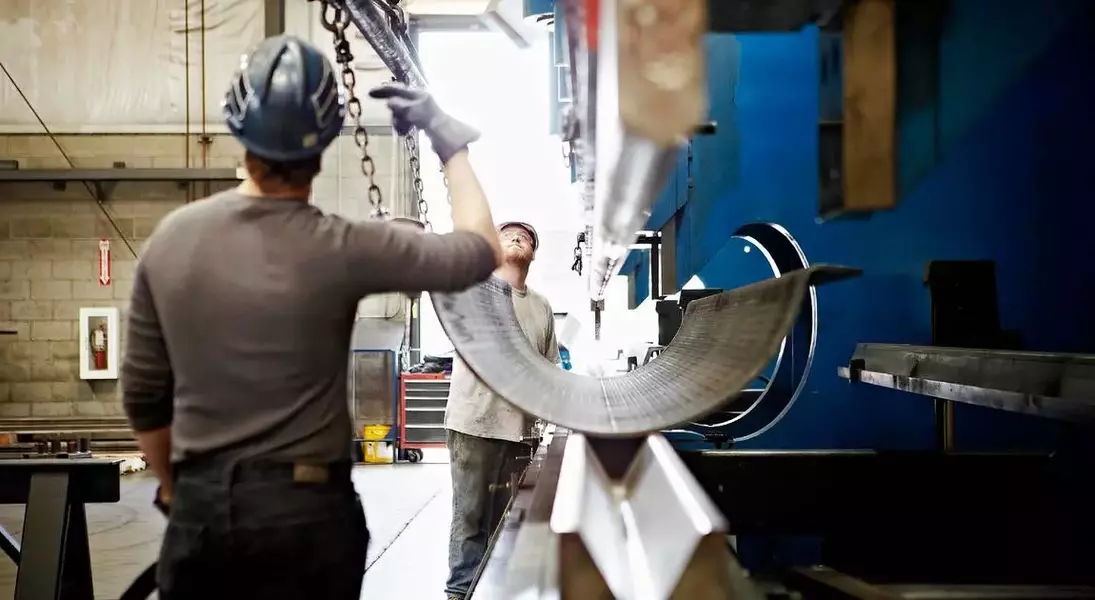
Blocking the Deal: A Strategic Move or Political Payback?
President Biden’s decision to block the $15 billion deal between Nippon Steel and U.S. Steel has sparked intense debate. Citing national security and supply chain concerns, the administration halted a transaction that many believed would revitalize U.S. Steel’s operations. The CEO of U.S. Steel, David B. Burritt, vehemently criticized the move, labeling it “shameful” and “corrupt.” He accused the president of prioritizing political interests over the company’s future, its workforce, and even national security.
Burritt argued that the deal was crucial for securing a prosperous future for U.S. Steel, its employees, and the broader community. He emphasized that the partnership with Nippon Steel would have injected much-needed capital into aging facilities and provided job security for thousands of workers. However, critics argue that the deal could have compromised national security and economic independence, particularly given the strategic importance of the steel industry.
Potential Pathways Without Foreign Investment
Without the influx of capital from Nippon Steel, U.S. Steel faces an uncertain path forward. Analysts predict limited options for the company, especially considering the reluctance of domestic rivals to step in. Bill Peterson, a metals and mining analyst at JPMorgan, noted that foreign ownership is now off the table, leaving few viable strategies for growth. U.S. Steel might be compelled to scale back legacy blast furnace investments and shift towards more cost-effective electric arc furnaces, potentially impacting union jobs.
Some experts believe that U.S. Steel could still attract bids from domestic competitors like Nucor Group, which previously showed interest but backed out due to pricing concerns. However, others are skeptical, pointing out that no other company is likely to match Nippon Steel’s generous offer. This leaves U.S. Steel with the option of operating independently, focusing on expanding its Big River steel plant in Arkansas, which boasts significantly lower emissions compared to traditional methods.
Challenges and Legal Battles Ahead
Both U.S. Steel and Nippon Steel are expected to contest the administration’s ruling, facing what many anticipate will be an uphill battle. The companies issued a joint statement, asserting that the president’s decision lacked credible evidence of national security risks and appeared politically motivated. They vowed to take all necessary legal actions to protect their rights and the interests of stakeholders.
Supporters of the deal contend that it would have revitalized communities dependent on the steel industry, secured jobs for thousands of workers, and strengthened the American steel supply chain. Nippon Steel had pledged a $3 billion investment to modernize U.S. Steel’s facilities, extending their operational life and ensuring continued employment. Opponents, including the United Steelworkers union, celebrated the administration’s move, arguing that U.S. Steel can remain profitable and resilient without foreign ownership.
Financial Struggles and Market Reactions
U.S. Steel’s financial performance has been under scrutiny, with recent earnings falling short of expectations. The company reported fourth-quarter adjusted earnings of approximately $150 million, significantly below Wall Street forecasts of nearly $262 million. Third-quarter net earnings also declined from $299 million to $119 million year-over-year. Annual revenues, which once reached $24 billion in 2008, have dipped to $18 billion by 2023, underscoring the company’s struggle to boost sales.
Market reactions were swift, with U.S. Steel shares plummeting 6.5% on the day of the announcement, trading at $30.47. Shares have fallen 36% from the same period last year, reflecting investor concerns about the company’s future prospects. Industry observers warn that if U.S. Steel cannot turnaround unprofitable plants, closures may become inevitable, further complicating its ability to compete in a challenging market.
Antitrust Concerns and Industry Dynamics
Even if domestic rivals express interest in acquiring parts of U.S. Steel, antitrust concerns could hinder potential transactions. Corporate adviser Jay McDonald highlighted the risk of monopolistic practices if mergers lead to excessive market concentration. Jeremy Flack, CEO of Flack Global Metal Supply, echoed these concerns, noting that the Nippon deal introduced a new player to the market, preventing further consolidation that could eventually create an oligopoly.
Flack emphasized that blocking the deal does not serve the best interests of customers, shareholders, workers, or national security. He suggested that the story is far from over, as legal challenges and a new administration could bring changes. President-elect Donald Trump has already voiced opposition to the takeover, adding another layer of complexity to the situation. As the saga unfolds, the future of U.S. Steel remains uncertain, with stakeholders eagerly awaiting developments that could shape the trajectory of this historic company.
